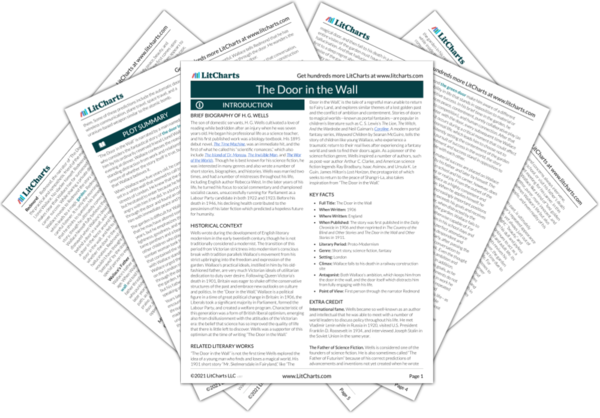At this point, Wallace has begun to understand that the door in the wall exists in tension with the “real” world. It is not available to him in times of leisure; rather, to guarantee his entry into the garden, he must take the opportunity as soon as he sees it, despite his conflicting obligations. His belief that he could have found the door again if he had not told anyone further highlights the tension between reality and fantasy. In talking about the garden, he attempts to make it concrete and verifiable, two things that the dreamlike and elusive garden can never be. Just as he cannot bring certain features of the garden out into the real world, he cannot bring the real world—either his schoolmates or the rules of concrete reality—into the garden. Once again, Wallace’s preoccupation with the garden prevents him from full and concentrated attention in his real life. His grades suffer because of his melancholy over his second loss of the garden, and it is not until his material ambitions again motivate him that he can refocus on his real life.
